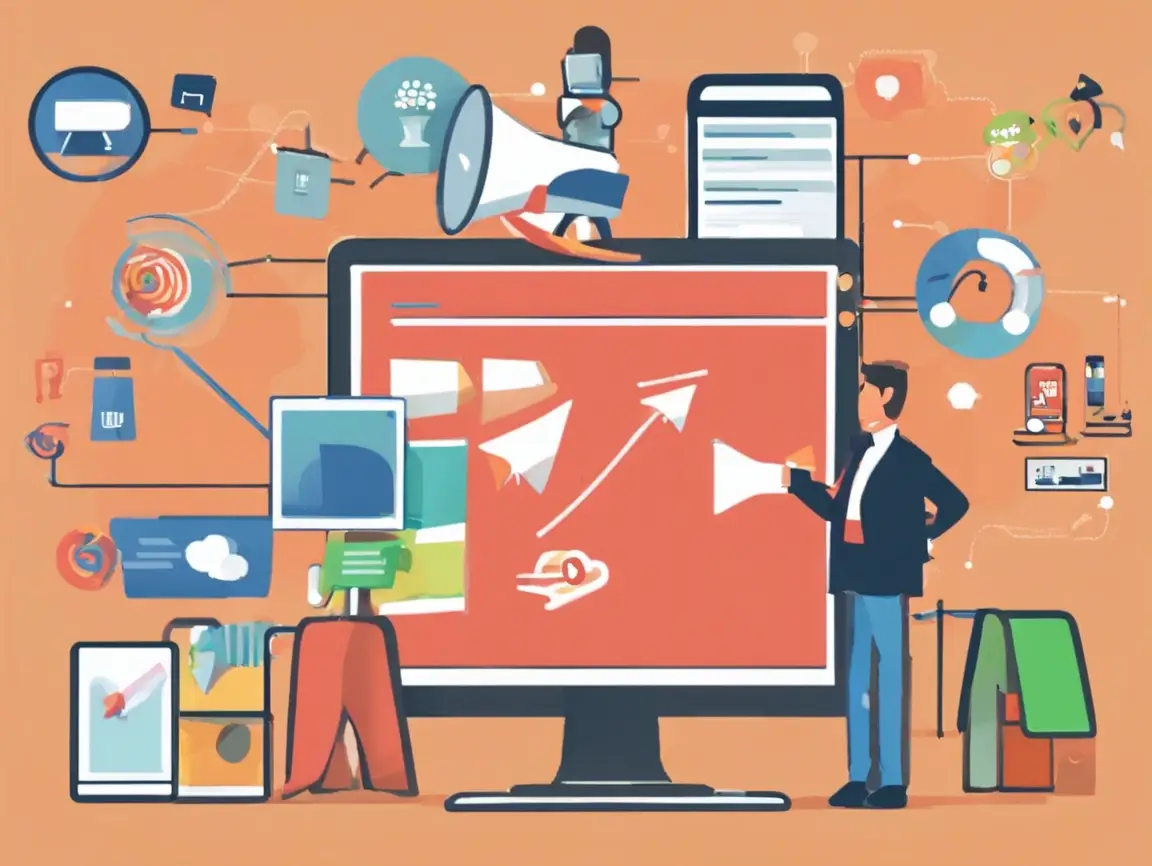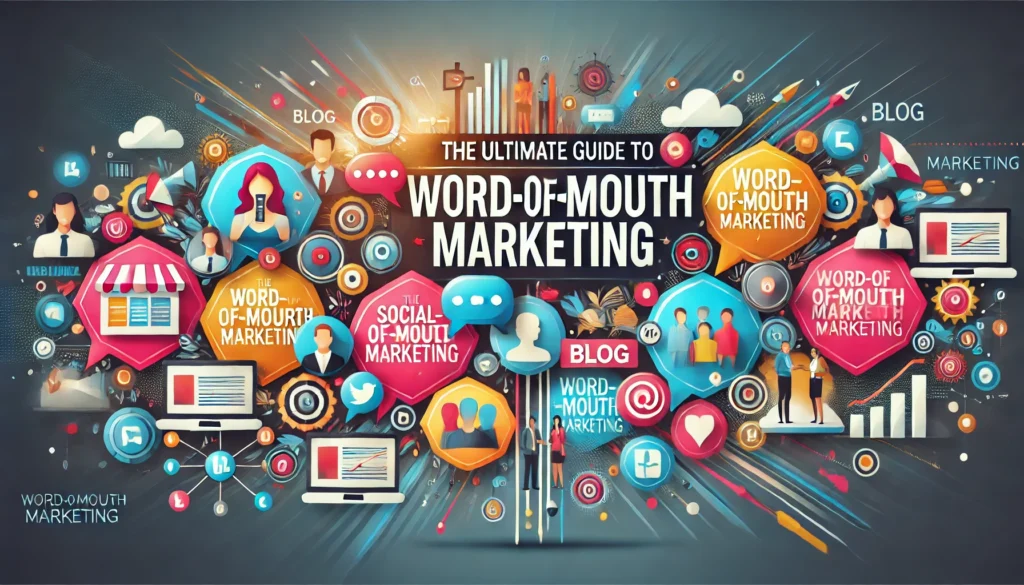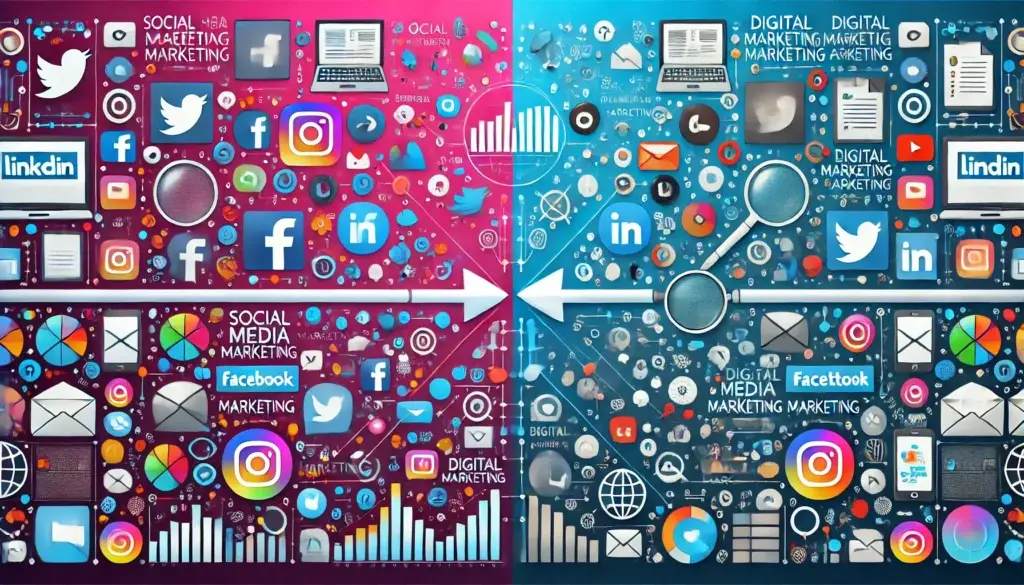What is Digital Marketing?
You’ve probably experienced seeing the perfect ad at the perfect time, with the internet mysteriously presenting you with just the right product to solve a problem in your life. While it may seem like magic, the truth behind this phenomenon is the meticulous work of digital marketers and their sophisticated digital marketing techniques.
But what exactly is digital marketing? Digital marketing involves promoting and selling products and services through online marketing tactics such as social media marketing, search marketing, and email marketing. Essentially, it encompasses all marketing efforts that use an electronic device or the internet. Businesses leverage digital channels like search engines, social media, email, and their websites to connect with current and prospective customers.
How Digital Marketing Differs From Traditional Marketing
The primary difference between digital marketing and traditional marketing lies in the medium through which an audience encounters a marketing message. Traditional marketing uses traditional media such as brochures, letters, magazines, coupon books, billboards, and newspapers. In contrast, digital marketing uses digital media, including social media platforms, search engines like Google, and websites.
Why Is Digital Marketing Important?
The importance of digital marketing becomes evident when you consider the proliferation of electronic devices around you. You’re likely reading this on a laptop or mobile device, and you probably have several other internet-connected devices within arm’s reach.
Consider how you consume information and share it with colleagues, friends, and family. The way we buy things, discover events, and even decide how to vote has been transformed by our constant online connectivity. This pervasive online presence is a key reason why digital marketing has revolutionized how businesses promote and market their products and services.
Here are a few reasons why digital marketing is essential for any business:
Reach Your Potential Customers
More people are now using the internet and spending significant time online, searching, engaging on social media, or making purchases. This means that your potential customers are more active online than offline. If you don’t meet them where they are, your competitors will, and you risk losing valuable prospects. Furthermore, digital marketing enables you to reach more leads with a smaller budget compared to traditional marketing. It’s versatile enough to be used by companies of any size and industry to reach their target audience effectively.
Compete with Top Brands in the Industry
Digital marketing levels the playing field, allowing even small businesses to challenge the dominance of industry giants. With access to the same tools and techniques that big players use, smaller businesses can compete on equal footing. Strategies like PPC management, Search Engine Optimization (SEO), Social Media Marketing, and banner advertising enable small businesses to reach potential leads cost-effectively, often giving top competitors a run for their money.
Cost-Effectiveness
One of the significant benefits of digital marketing is its cost-effectiveness. Unlike traditional marketing methods that involve significant upfront costs for print media such as magazines, newspapers, and brochures, digital marketing allows you to set your budget and control your spending. Online advertising on social media, websites, or search engines enables you to allocate funds efficiently, ensuring a better return on investment.
Ease of Tracking and Monitoring
Modern marketers need a reliable way to track the success of their marketing campaigns. Digital marketing offers unparalleled tracking and monitoring capabilities, allowing businesses to see what’s working and what isn’t. This data-driven approach enables companies to measure their return on investment more accurately, identify areas for improvement, and develop more effective campaigns based on the findings.
Best ROI
Digital marketing is renowned for delivering impressive results for businesses of all sizes and industries. The potential for high returns on investment is significant, making it a highly attractive option for companies looking to maximize their marketing efforts.
Types of Digital Marketing
Digital marketing encompasses various channels that businesses can utilize to promote their products or services and effectively reach their target audience. Some of the most effective channels include:
Search Engine Optimization (SEO)
SEO is a critical tool for enhancing online visibility in search engine results. Popular search engines like Google, Bing, and Yahoo allow users to find specific search results based on keywords, the user’s location, and browsing history. To appear on the first page of search engine results (SERP) and attract more website traffic, it’s essential to optimize content for relevant keywords and strategically use inbound and outbound links. Businesses must stay updated with search engine algorithm changes and adjust their strategies accordingly to remain competitive.
Paid Social and Paid Search Advertising
Paid social ads appear on social media platforms, while paid search ads show up on SERPs when users enter queries. Advertisers create these ads and bid for positions on their chosen social platform or search engine, targeting specific demographics and interests to maximize reach and engagement.
Content Marketing
Content marketing involves creating and distributing valuable, relevant content to attract and engage a target audience. It includes various content types, such as blog posts, infographics, videos, eBooks, and white papers. Effective content marketing often incorporates SEO, paid search, and social advertising to enhance its impact.
Email Marketing
Despite being one of the oldest digital marketing strategies, email marketing remains highly effective. It involves sending regular updates about products, services, and company news to a list of subscribers. Email marketing helps nurture relationships with customers, building brand trust and loyalty.
Other types of digital marketing include marketing automation, design, apps, mobile marketing, SMS, web analytics, and growth hacking.
Conclusion
In conclusion, digital marketing is an indispensable tool for businesses looking to thrive in today’s digital age. It offers a cost-effective, measurable, and adaptable way to reach a vast audience and compete with industry leaders. By understanding and leveraging the various aspects of digital marketing, businesses can enhance their online presence, engage effectively with their audience, and achieve significant growth and success.




